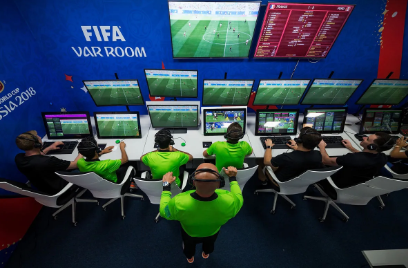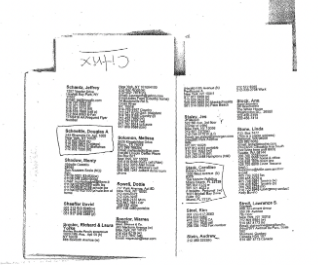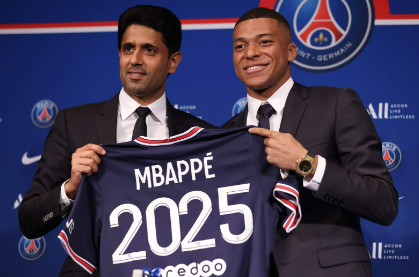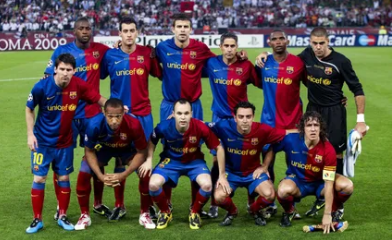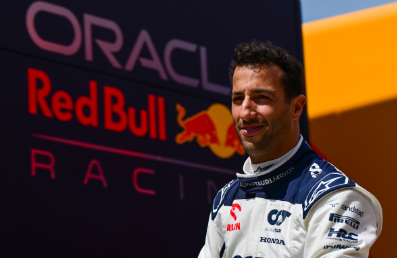Filed under:
Seasons come and go but one thing that ties so many together is the questionable decisions made by referees. The very invention meant to alleviate this, VAR or Video Assistant Referee, has created an environment with even worse challenges, we can’t go a single match week without a call sparking outrage. It goes beyond just game wins and losses. The implications of VAR have seeped into more than refereeing; they've changed the tactical ways clubs have to play the game.
Recently the leagues with the most controversies around VAR are unsurprisingly the leagues who use it most, the Premier League and the Champions League. More use naturally leads to more abuse, most recently we saw the match between Newcastle and PSG be tied after a controversial on-field call that was later held up by VAR. In a game that could have seen Newcastle be forced out of the tournament the lack of care with which the matter was handled was astonishing. A ball indirectly gracing a player’s elbow may fit the technical definition for a handball but based on the situation a handball penalty should not have been given. Technology lacks nuance and referee over reliance on it has validated outrageous and harmful calls.
It isn’t just the calls that get awarded, it's the ones that don’t as well. Throughout the Premier League we’ve seen some pretty outrageous fouls go uncalled and unreviewed. VAR is slow and oftentimes play will have resumed and continued before the technology has even started its review. Calling something at the point of confirmation causes interruption in flow which makes it harder for plays and can kill some plays. In the City versus Tottenham game Jack Grealish was on a last minute breakaway that would have won City the game, previously there had been a foul on Erling Halaand but play was allowed to continue during the breakaway the referee received confirmation and gave the whistle a blow stopping the attack. This led to the game finishing in a tie, and massive outrage against the referee.
VAR, which was invented to make referee’s better and more fair by taking human error out of the equation, has only worsened the refereeing in the leagues who use it most. In leagues that use the technology less there are fewer ref scandals and while this could also be due to the exposure of the league it stands to reason that the impact of VAR is a contributing factor. It isn’t just the officials who have been impacted by this, it's the way clubs play the game.
Whenever something becomes widely adopted teams generally have to learn to work with it. This learning to work with it transitions into teams adapting strategies to fit around this new anomaly. In terms of VAR the breaks which often interrupt the flow of play without a real rhyme or reason have only supported the growing trend of positional play and loose positioning. Having a player stay stiff in their spot works great in an uninterrupted game where staying in position allows everyone to play to their own strengths and build up attacks through the proper ranks. The frequent breaks caused by the increase in VAR checks create a different need.
Having the flow of a game interrupted makes those big breakaways so much more important. It isn’t enough to move the ball, you have to do it efficiently and without too much contact from the other team. Teams with loose positions allow whichever player is on the best breakaway to move around without fear as teammates will simply adapt to the player with the current possession. This could be seen very strongly in last season's Manchester City but its practice has decreased a bit with the club. Arsenal, Tottenham, and most recently Everton have also found success with these quick movements and rotating positions. Breaks can take a player out of the on pitch mindset and ruin a long planned play which is why quicker efficiency has taken favor over drawn out possession in recent seasons.
More than just planned tactics, VAR changes players on pitch decisions. The standard for refereeing has fallen while there were always differences between what refs would call this disparity has now been widened to include almost all refs. VAR once again can be found at the center of the disparity, refs often have to go based on what VAR flags or chooses to investigate and leave themselves at the mercy of the technology. This means players take note early on in the game of how physical they can be which has frequently become extremely physical. In games this can quickly translate to one of two worlds either the VAR fails to call so players feel more obligated to engage in dramatic flops to the ground to at least get the referee's attention. This fails and only ends up making the real fouls go less and less noticed leading to an overly physical game. Or the VAR will catch every little thing increasing stoppage time and creating a game where brushing someone can be a foul.
The impact of VAR on the game spans from team strategy to decisions made at the individual player level, these unintended consequences have come to shape the game we know and love. The mission of VAR may have been noble but at what point does the technology become unhelpful? And have we reached that point in leagues where there’s a new scandal every week? Games change through time and invention but it’s time to really think about the game the footballing world wants and what place something that so blatantly changes the tactical layout of the game has or if it has one at all.
